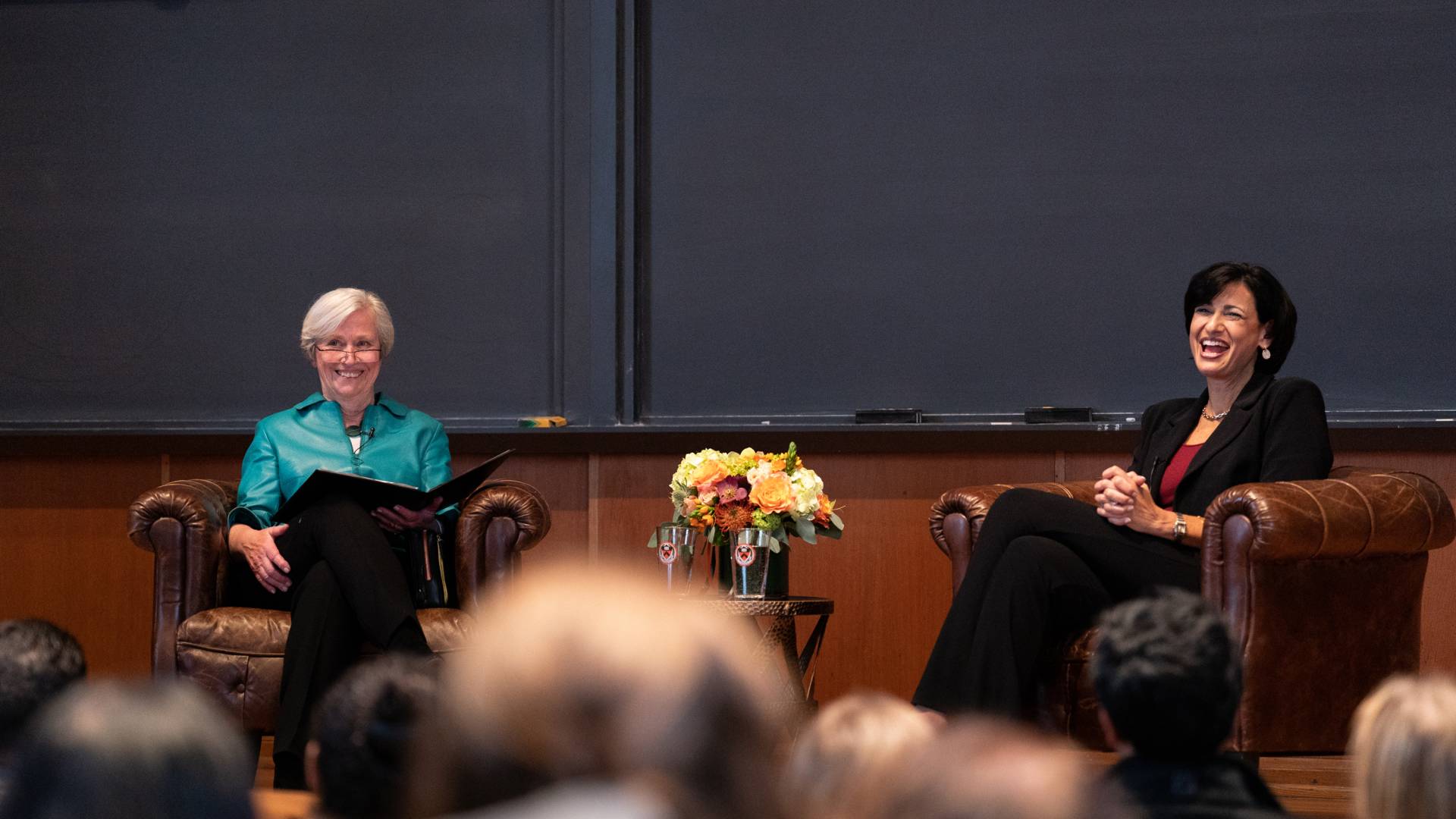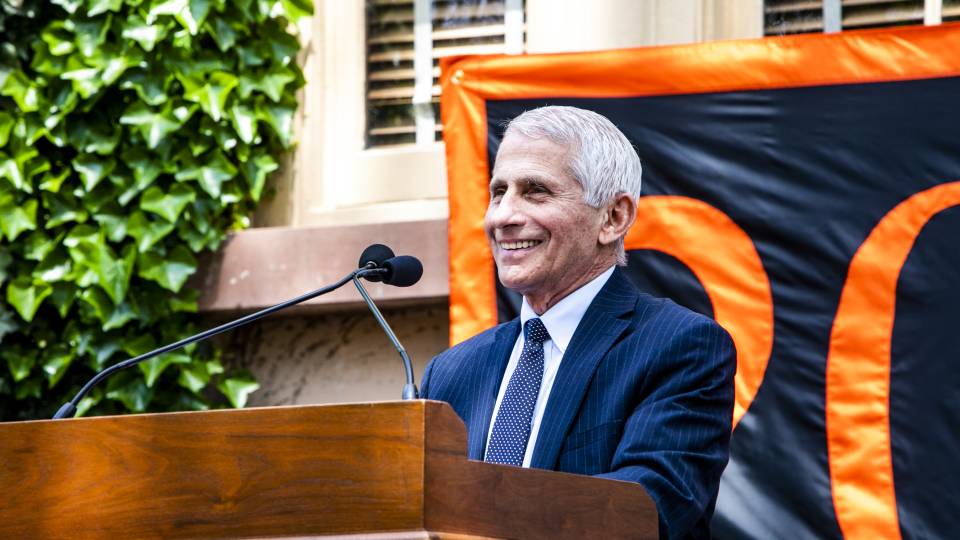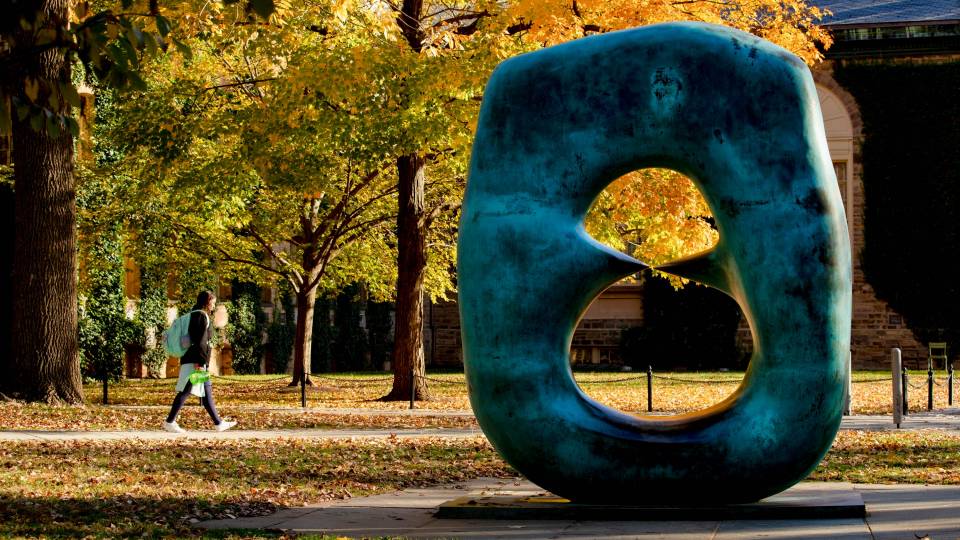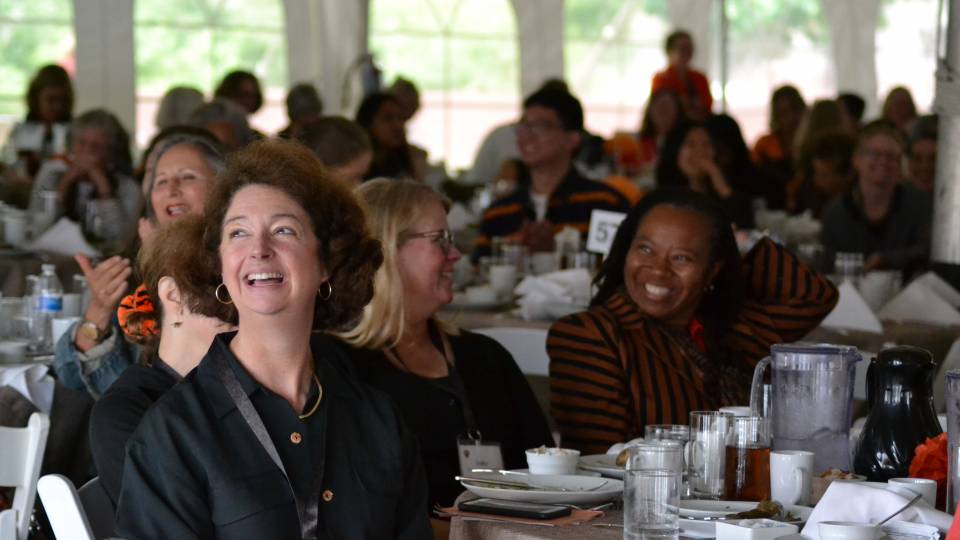CDC Director Dr. Rochelle Walensky (right) talks with Princeton President Emeritus Shirley M. Tilghman (left) during a March 24 conversation on campus. Walensky provided insights into how the CDC is addressing the COVID-19 pandemic and spoke about her broader career in public health.
Dr. Rochelle Walensky, director of the Centers for Disease Control and Prevention (CDC), visited Princeton March 24 to tour the University’s COVID-19 testing laboratory and speak about her public health career during a lecture organized by members of the Class of 2022.
Walensky said there is still a lot of work needed to fight the pandemic and said vaccines and boosters are the best tools against COVID-19.
Her remarks were part of a conversation with President Emeritus Shirley M. Tilghman, professor of molecular biology and public affairs, emeritus. The CDC director also answered questions submitted by seniors and from undergraduate and graduate students seated in McCosh 10 auditorium. The Senior Class Last Lecture series invites speakers from different fields to offer advice on how students can pursue diverse career paths and personal passions after graduation.
“Dr. Walensky can provide unparalleled insights into the COVID-19 pandemic, as well as navigating a career in public health,” Class of 2022 treasurer and molecular biology concentrator Mansi Totwani said in her introduction.
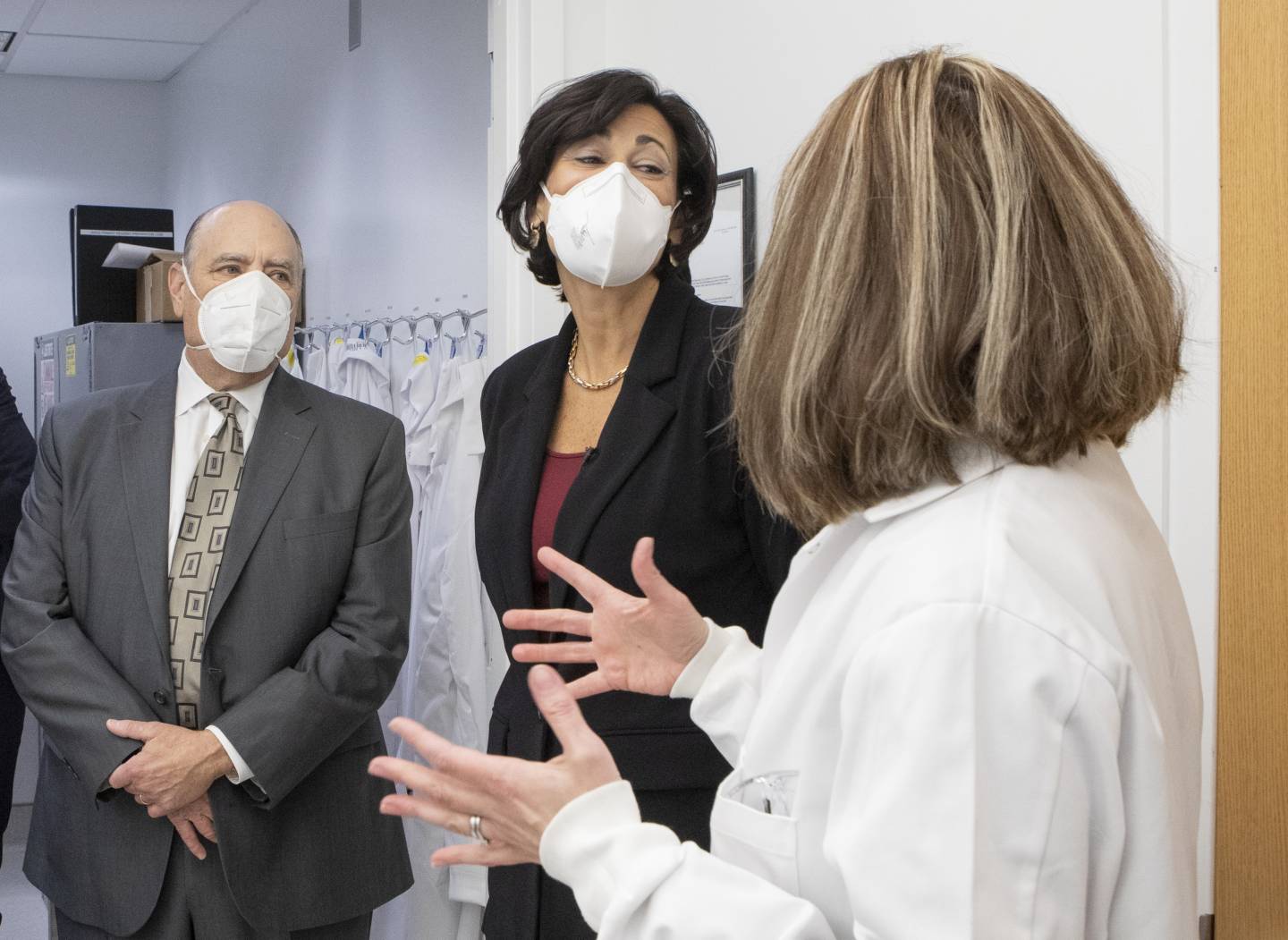
Walensky (center) tours the University’s COVID-19 testing laboratory and talks with Dr. Dan Notterman (left), professor of the practice in Molecular Biology and a senior adviser to provost for biomedical affairs, and with Irina Aranovich (right), general supervisor of the diagnostic laboratory. The laboratory, for faculty, staff, students and researchers, has processed 700,000 tests since Nov. 1, 2020.
Walensky has led the CDC since January 2021. She previously was chief of the Division of Infectious Diseases at Massachusetts General Hospital and professor of medicine at Harvard Medical School. She is an influential HIV/AIDS researcher, and has conducted research on vaccine delivery and strategies to reach underserved communities.
While at Princeton, Walensky visited the University’s COVID-19 testing lab, which has processed 700,000 tests since Nov. 1, 2020. The in-house lab facilitates comprehensive testing of faculty, staff, students and researchers and is integral to the University’s health and safety measures. The University also has a vaccine and booster requirement.
Walensky said it’s been important for education to continue during the pandemic.
“The thing that has helped make that possible at Princeton University is testing,” she said. “I’m really excited to see how they’ve been able to do that.”
During her afternoon talk on campus, Walensky addressed a wide-range of questions, including one that drew parallels between her work fighting HIV/AIDS in the 1990s and confronting the deadly COVID-19 pandemic now. She also spoke about how the CDC is working to address health disparities among people of color and socioeconomically disadvantaged populations; about the difficulty of making public health decisions in the face of evolving information and data on COVID-19; and about the challenges of combating misinformation and distrust of vaccines, and of ensuring public trust in science.
“What do you say when you want to get people vaccinated?” Walensky asked rhetorically. “You don’t talk, you listen. You ask them, ‘What is the reason?’ and you try to address the reason that they are not getting vaccinated.”
Walensky noted the CDC’s charge is to recommend public health policies, but implementation and enforcement is generally the purview of other federal agencies and state governments.
“This is hard,” she acknowledged. “We are not making recommendations in a vacuum. Our guidance has to be relevant and appropriate in Manhattan, in the Cherokee Nation, in Guam and in rural Montana. We have to make guidance that is appropriate in all those different kinds of districts.”
Another challenge is developing policies based on scientific information and data that changes in real time as experts continue to learn more about COVID-19.
“Our guidance has to be founded on scientific information,” Walensky said. “But science is gray. We present data to the American people in two-minute snapshots on the nightly news. Saying it’s gray, saying we need more, saying it could change in a two-minute soundbite is hard.”
One of the many lessons of the pandemic, Walensky said, is that countries and states must invest more in public health resources. “The CDC was getting a million [COVID] cases a day reported to us. There are health departments that only had a fax machine to report their data.”
Answering questions on other topics, Walensky shared how the CDC is working to address systemic racism in healthcare. “I challenged the agency to stop just documenting the problem, to implement strategies that will address the problem,” she said.

Junior Sophie Singletary asks Walensky a question during the CDC director’s talk in McCosh 10. The event was presented as part of the Senior Class Last Lectures series.
To close, Walensky offered three pieces of advice for graduating seniors in the audience: Don’t let failure deter you; surround yourself with people who disagree with you, and listen to them; and ask the really big questions.
“And know that when you go after those questions, you may fail. Those are the questions we need you to tackle,” she said.
Following the conversation, sophomore Jonah Clatterbuck said he was grateful to learn directly from Walensky.
“It’s not every day you get to hear from someone as esteemed and recognized as the CDC director,” he said. “Given the pandemic that we have all lived through, it’s a really important and valuable perspective to have. Having the opportunity to attend an event like this makes me really proud to be a Princeton student.”
